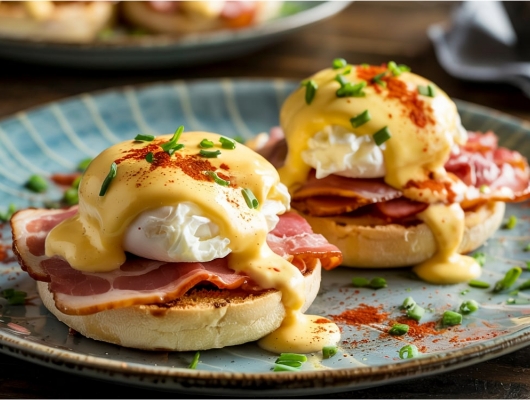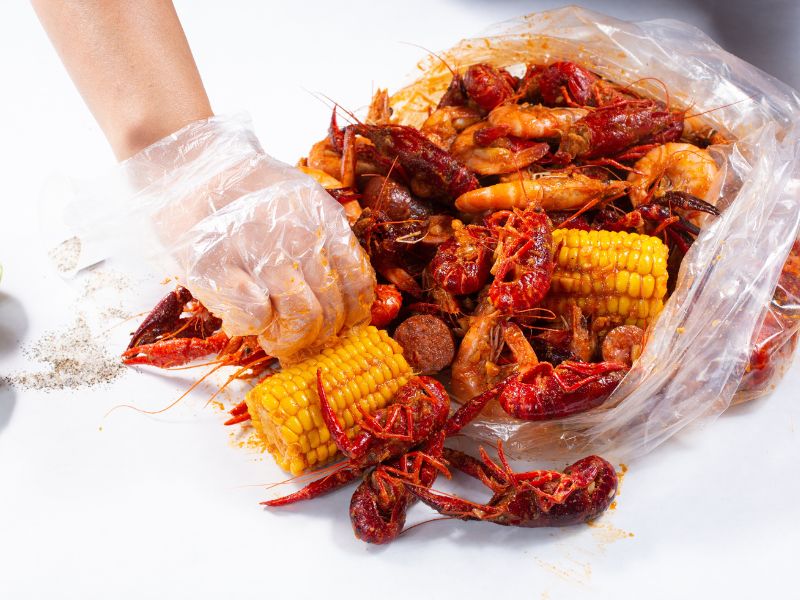If you’re looking for a way to connect with new audiences or to drive more traffic to your restaurant, a pop-up could be just the thing if it suits the operation and makes sense.
A pop-up is usually a temporary restaurant, often in an unexpected location. You can offer up your restaurant to a chef who’s organizing a pop-up; you can host your own themed pop-up in house; or you can take your concept on the road and pop-up somewhere new.
Pop-ups may be one-night affairs, an ongoing series, or a longer-term concept that is planning to transition to a brick and mortar. As a restaurant operator, you may be wondering how a pop-up could possibly benefit your business. Let’s take a look at how restaurateurs can leverage pop-ups to increase revenue.
The Host with the Most
One way to expand your reach and bring new customers through the door is to host a pop-up from an up-and-coming chef on a night when your restaurant is typically closed. You may have talent on your BOH staff that’s interested in flexing their creativity with a pop-up of their own, and that’s a great place to start because it allows you to showcase the talent of your staff, while simultaneously building trust and respect among your employees, who see you creating opportunities for growth and advancement.
To set up a pop-up in your restaurant, you first need to create an agreement that all parties sign. This should state the parameters of the event — how you plan to handle ticketing, on-site sales, staffing, ordering, etc. In order to make it worth your while, you may take a cut of each sale, or you may run all of the beverage sales while the pop-up chef keeps the revenue from food sales. It is essential that you have an agreement that clearly specifies everyone’s role in the pop-up so that there’s no confusion leading up to or during the event.
The organizer of the pop-up will be a kind of business partner for the duration of that pop-up or series, and each pop-up will have its own unique needs. Determine in advance if you need to help with ordering food or beverages (often this will be the case, as you have better purchasing power than an individual), if you need to provide staff for the evening, and if you need to run sales through your POS or if your pop-up partner has it covered using a ticketing platform.
And Now For Something Completely Different
Another approach to hosting a pop-up in-house is to go all-in on a special themed menu that’s only available for an extremely limited time. I’d say no more than a week to make it really special. This could be a limited, prix fixe, or a la carte menu that plays up one particular ingredient that’s at its peak or especially trendy; or it could be a way to offer a completely different type of cuisine than what you usually sell — think an Italian restaurant serving up a Hawaiian-inspired feast.
Rather than partnering with a pop-up organizer, this pop-up is totally your own show. Push yourself to fully commit to whatever theme you choose with intentional decor, a focused menu, beverage pairings, and all the trimmings so that guests feel like they’re somewhere totally new.
Hit the Road
Instead of hosting a pop-up at your restaurant, you may find it advantageous to create a pop-up experience off-site. I’ve seen this happen most often when the chef of a restaurant releases a cookbook — that chef and some supportive staff may do several pop-ups at other restaurants as a kind of book tour, popping up for a night or two at restaurants where they have connections and friendships.
This type of pop-up allows you to expand your reach, both geographically and by connecting with the host venue’s existing network. An off-site pop-up doesn’t always have to be in another restaurant. Possible venues include retail shops, museums, and other community hubs. They can be held to celebrate an achievement, like the 10-year anniversary of your restaurant being in business, the release of a new cookbook, or earning some sort of impressive accolade, like a James Beard Award.
As mentioned above, it’s important to establish the parameters of the event with all participating parties so that everyone understands their roles and responsibilities. Make sure you get an agreement in writing before you begin to promote your event.
One Night Only
Scarcity drives demand. It’s one of the first tenants of business, and it’s never more true than in the case of a pop-up, where the knowledge that this particular menu will only be available for a night or two has a hugely motivating effect for customers.
Spread the word with your contacts in the local press and share details about the event (such as introducing the theme, highlighting menu items, etc.) on your social media. By combining forces with the pop-up organizer, you’re connecting with their audience as well as your own, so look for ways to capture that new audience: Invite them to sign up for your newsletter for dibs on future events!
Plan Before You Pop
Pop-ups can be wonderful for all of the reasons described above, but they can also come with a lot of extra work. While they are excellent tools for increasing dollars per hour per square foot, they can also lead to additional wear and tear on your building and equipment, fatigue from overworked employees, and confusion when it comes to accounting. For an operator who’s used to running their business the same way day in and day out, a pop-up can present some unique challenges, so it’s important to have a plan in place..



